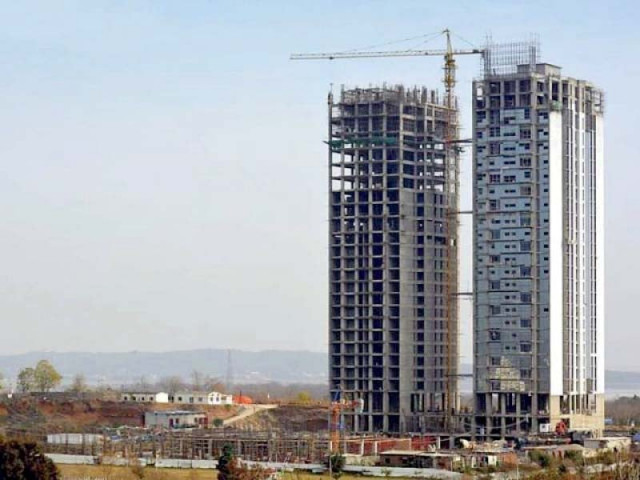Political and financial turmoil
Jacking up of policy rate will further slow economy along with high inflation

The economy is facing acute political instability. A series of political events/ surprises are aggravating economic uncertainty with every passing day.
This set of circumstances lead to speculation in economic activities. When the writ of the state weakens, speculators and profiteers become dominant.
If citizens raise questions about the prevailing high prices, they will attribute to the current situation. In simple words, they put the blame of high prices on others.
Elevated prices are witnessed in domestic commodities as speculators are involved in their buying and selling. The speculators are charging premiums on immediate delivery of automobiles.
Similarly, they remained involved in commodities such as sugar, wheat, potato, cotton, etc.
In addition, real estate provided a lot of opportunities to these speculators. When a new housing scheme is launched and files are offered on instalments, these speculators become active.
They keep on rotating their money from one scheme to the other in order to get quick returns.
Owing to these windfall gains, many industrial capitalists have deployed their capital in real estate. They took their capital out of their core business and could not concentrate on human resources development and technical progress.
By pouring capital into real estate, they could neither focus on productivity improvement nor grow their business. In a competitive world, growing business is quite significant.
The currency market also behaves like an asset market. The speculators were expecting that the rupee will depreciate against the dollar. When circumstances are normal, this expectation does not become a reality.
Dollar was hovering around Rs175 in the first week of March 2022. The initiation of no-confidence motion against the government started to develop the expectation of the speculators that the rupee will depreciate. As a result, the rupee gradually started to devalue.
However, this false expectation became a reality with the ongoing political turmoil and the rupee has touched 190 vis-à-vis dollar.
The State Bank of Pakistan (SBP) kept the policy rate at 9.75% in the Monetary Policy Committee (MPC) meeting of March 2022. Analysts and commentators were expecting an incremental adjustment at that time. The SBP intended to gradually tighten the monetary policy to sustain the recovery.
However, the Monetary Policy Statement cautioned that an emergency meeting could be called before the scheduled meeting in the last week of April 2022. The SBP called an emergency meeting on April 7, 2022 and jacked up the policy rate to 12.25% to safeguard the external and price stability.
Additional prudential measures such as interest cost to exporters and cash margin requirements for importers will follow. It is further stated that these steps will reduce inflation and curtail the current account deficit. The abrupt monetary tightening will impact the economy in the coming months.
The jacking up of the policy rate will further squeeze the fiscal space for the government. It will automatically lead to fiscal consolidation by increasing the borrowing cost of the government and the axe will fall on development expenditure.
On this basis, the Asian Development Bank (ADB) has revised down the economic growth forecast for Pakistan from 4.8% to 4%.
The other study of the ADB has already mentioned that the economic growth in Pakistan is balance of payments (BOP) constrained and it could grow up to 3.7% without incurring any BOP difficulties. As the policymakers intend to grow the economy around 5%, the BOP constraint has become a binding.
In a nutshell, the economy is in BOP difficulties amid political and financial turmoil. The jacking up of the policy rate will accentuate slumpflation where economy will further slow down along with high inflation.
The writer is an Assistant Professor of Economics at SDSB, Lahore University of Management Sciences (LUMS)
Published in The Express Tribune, April 11th, 2022.
Like Business on Facebook, follow @TribuneBiz on Twitter to stay informed and join in the conversation.


1733130350-0/Untitled-design-(76)1733130350-0-208x130.webp)
















COMMENTS
Comments are moderated and generally will be posted if they are on-topic and not abusive.
For more information, please see our Comments FAQ